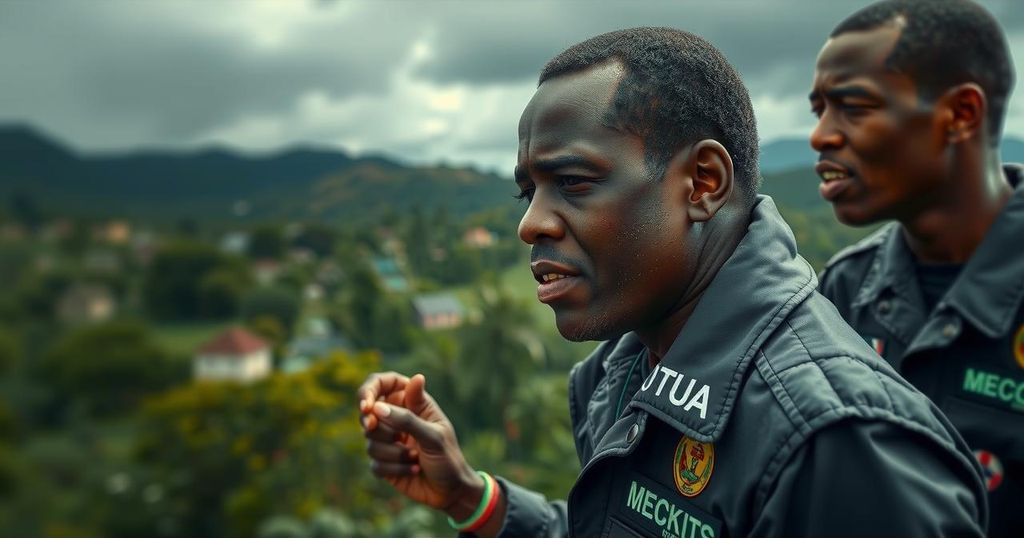A significant scandal involving sex tapes of senior civil servant Baltasar Ebang Engonga is perceived as a power struggle within Equatorial Guinea’s ruling elite. The leaks, coinciding with his arrest for embezzlement, raise questions of political manipulation as Vice-President Teodoro Obiang Mangue attempts to control the narrative while facing criticism over systemic corruption and human rights abuses.
The recent sex tape scandal involving Baltasar Ebang Engonga, a senior civil servant in Equatorial Guinea, represents a significant political episode amidst ongoing tensions regarding the presidential succession. Allegedly connected to President Teodoro Obiang Nguema, who has been in power since 1979, Engonga was captured in numerous explicit videos shared across social media platforms, stirring shock both locally and internationally. The dissemination of these videos coincided with Engonga’s arrest for embezzlement, leading to speculations that his political rivals might be orchestrating the leak to tarnish his reputation as potential successor to the president. The leaked videos not only feature Engonga but also several women, including relatives of high-ranking officials, raising concerns about consent and privacy. Vice-President Teodoro Obiang Mangue has attempted damage control, demanding telecom companies mitigate the spread of these explicit materials and threatening severe consequences for government officials engaging in inappropriate conduct. Amidst this scandal, underlying political motivations are suggested; some activists contend that these leaks may be part of a calculated effort by the vice-president and other factions to eliminate potential threats to his pathway to power. With a backdrop of governmental repression and a fractured civil society, the scandal represents not only personal indiscretions but deeper narratives of corruption and power struggles within Equatorial Guinea’s elite.
Equatorial Guinea, a central African nation, has been under the rule of President Teodoro Obiang Nguema since 1979, making him the world’s longest-serving president. Despite a history of economic prosperity fueled largely by oil, the country experiences extreme poverty, with wealth concentrated in a small elite. The regime is notorious for human rights violations and the suppression of dissent, leading to a political atmosphere rife with suspicion and paranoia. Amid this backdrop, the recent scandal involving Engonga highlights the precarious nature of power dynamics within the ruling elite, where personal scandals often intertwine with political maneuverings.
The Baltasar Ebang Engonga scandal underscores the intricate interplay between personal scandal and political rivalry within Equatorial Guinea. As the current regime grapples with allegations of corruption and human rights abuses, this incident may serve as a pivotal moment in the ongoing struggle for power within the nation’s elite. Investigations and societal responses to the scandal could significantly impact the political landscape and succession narratives of Equatorial Guinea.
Original Source: www.bbc.com






